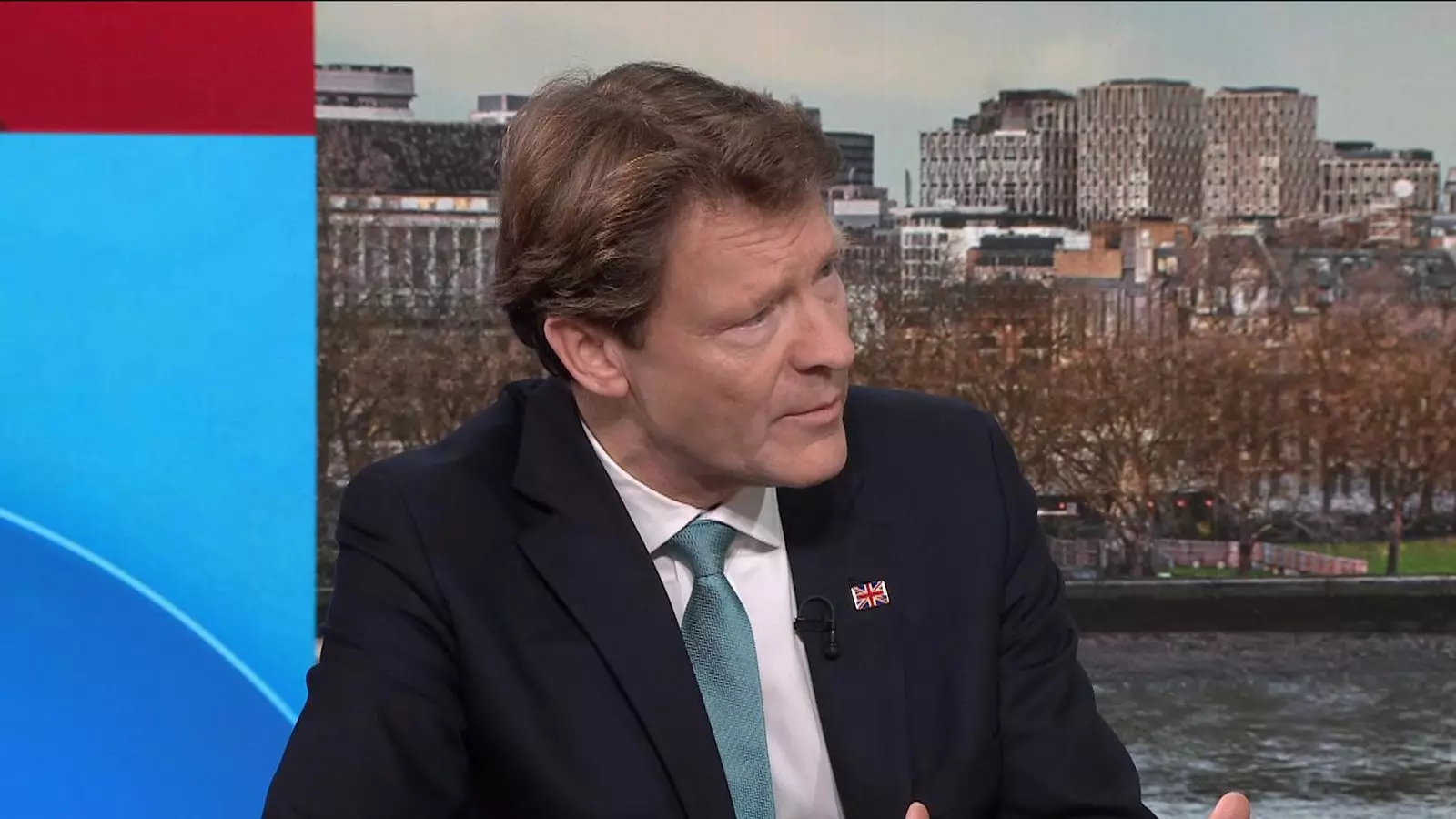The political landscape often reflects a blend of ideals, but at times, it becomes a stage for unsettling controversies. Recent events surrounding Reform UK and Deputy Leader Richard Tice have illuminated a troubling aspect of party politics—how leadership crises can emerge from within and impact the overall integrity of a political organization. Tice’s comments regarding the suspension of MP Rupert Lowe amid allegations of bullying and threats paint a vivid picture of the difficult terrain that political leaders must navigate. The fact that two women have come forward with claims of bullying against Lowe highlights not only individual misconduct but also raises fundamental questions about the party’s culture.
From Tice’s perspective, taking action was undoubtedly the “right” decision. However, he finds himself in a precarious position, having to balance the party’s reputation while also addressing serious allegations that cannot be ignored. When he noted that complaints had been filed as far back as December, the delayed responses from party leadership can be interpreted as either a lack of urgency or an inability to confront internal discord effectively. The timing of this revelation—coinciding with Lowe’s criticisms of Nigel Farage’s leadership—further complicates the narrative, leading to speculation about ulterior motives. Are these allegations genuinely addressed, or is the party attempting damage control?
The Struggles of Leadership Pragmatism
Political leadership is rarely a straightforward path, especially when faced with accusations that threaten the essence of trust within a community. Tice defended his decision to suspend Lowe as a necessary evil, arguing that unresolved allegations create an untenable situation. While one can appreciate the gravity of this dilemma, it’s also essential to dissect how leadership decisions are often made under pressure rather than from a place of moral clarity. Tice’s assertion that one cannot “work with someone” when a situation becomes impossible captures the essence of a practical approach to governance, yet it neglects the underlying issue of responsibility in public life.
The allegations of bullying bring to light a painful reality: the testimonies of victims can often be buried beneath the ambitions of political maneuvering. Tice’s comments about the need to avoid simply “brushing it under the carpet” are commendable, but should they not raise further inquiries about what systemic changes are necessary to ensure that such behavior is confronted swiftly? By admitting that “there have been a number of difficulties and challenges,” there’s implicitly an acknowledgment that this is not an isolated incident but rather symptomatic of a larger issue within the party itself.
Outer Voices and Inner Turmoil
One can’t help but wonder how many other stories remain untold within the walls of Reform UK and other parties across the political spectrum. Lowe’s allegations of being targeted for his views, specifically around the contentious issue of deportation, reflect a troubling division. While political discourse should always be open to challenge, it’s disturbing when debate converts into personal attacks—particularly from within the party ranks. Lowe’s stance on deportations and the fierce pushback he appears to have received underscores a disheartening dynamic prevalent in political organizations: the fear of speaking one’s mind can result in severe backlash.
If Lowe is indeed correct in his claim that his vocal opposition to party leadership led to his current predicament, it raises the question of how much dissent is tolerated in a healthy political environment. The culture of conformity can stifle innovation and lead to a monolithic party line, ultimately undermining the democratic principles that political parties claim to uphold. Tice’s commitment to transparency, albeit laced with challenges, must translate into actionable measures that create a more accountable and open atmosphere for all members—free from intimidation or reprisal.
The Erosion of Trust and Future Implications
Ultimately, these events within Reform UK reflect a broader issue of trust in political entities. As allegations of misconduct unfold, the consequences ripple outward, influencing public perception and disenfranchising potential supporters. Nigel Farage’s candid acknowledgment of containment strategies failing signifies a watershed moment; if party leaders cannot manage their internal problems effectively, how can constituents trust them to lead on larger societal issues?
A leadership crisis of this nature is not merely a reflection of individuals failing but rather serves as a wake-up call for political organizations to rethink their frameworks and protocols surrounding accountability, transparency, and effective communication. In a changing political landscape, those who fail to evolve risk losing not only followers but also the public’s faith in democratic processes. The fallout from these recent allegations begs for deeper scrutiny into how political parties reconcile their internal struggles while maintaining a facade of unity and purpose.


Leave a Reply